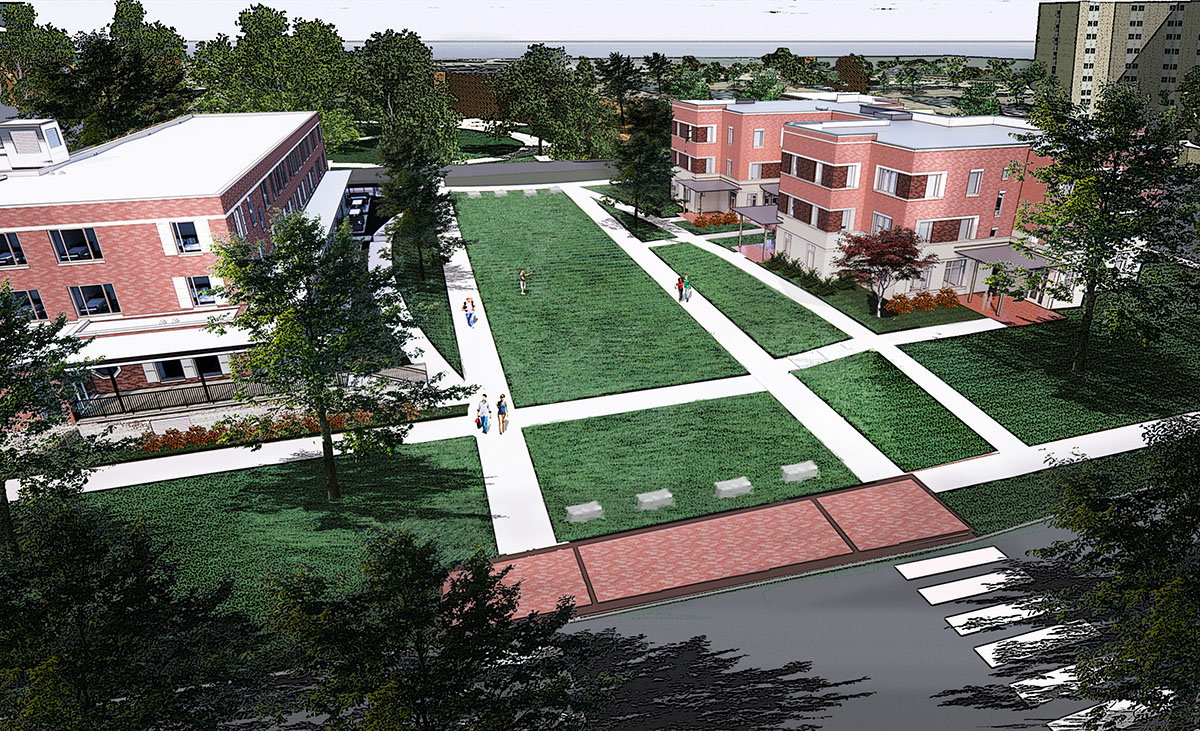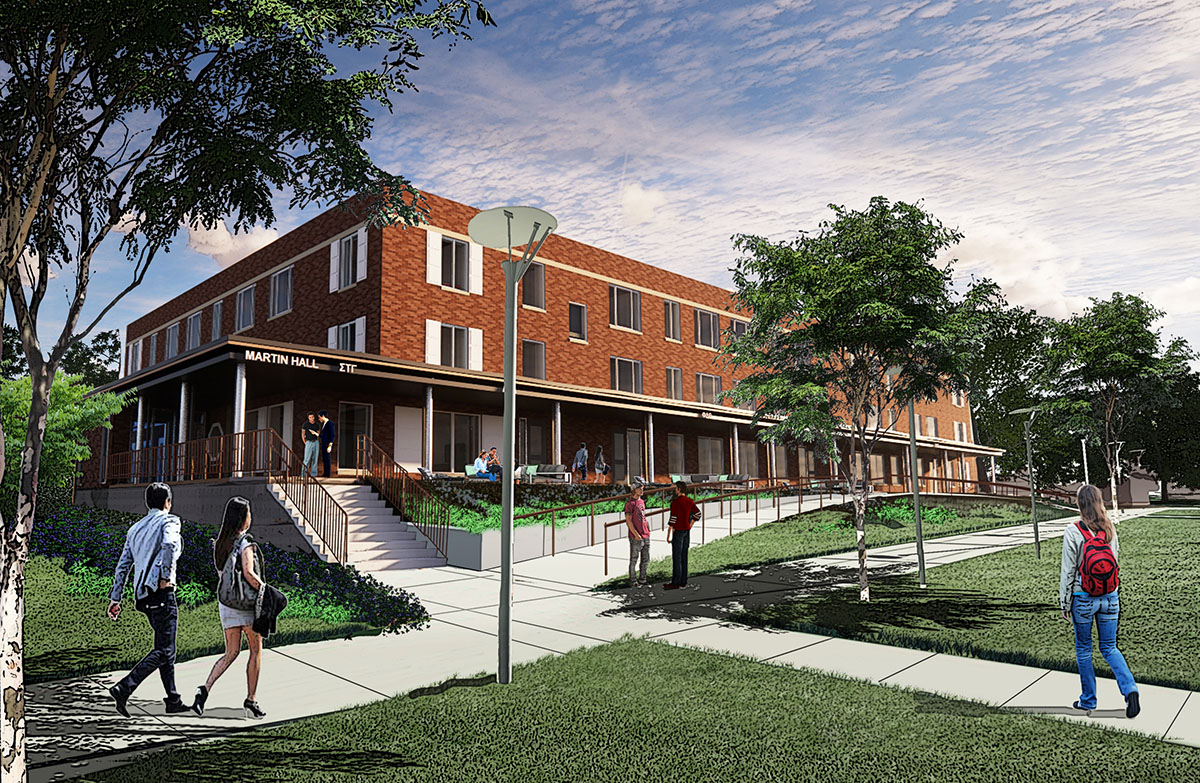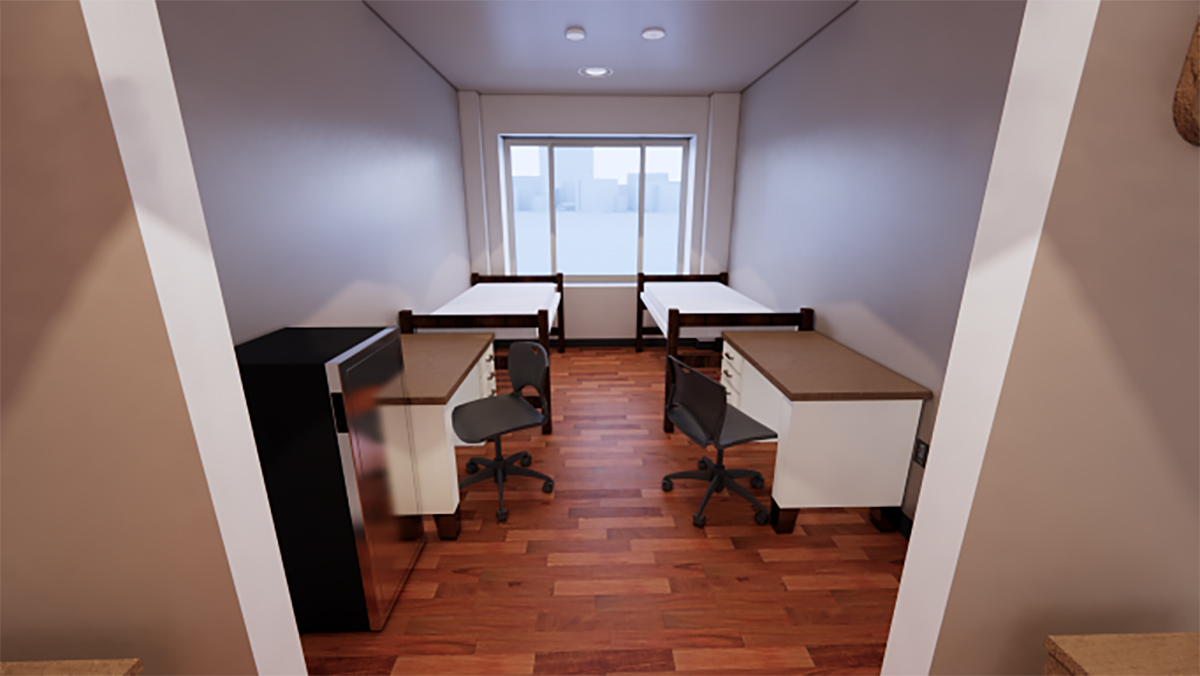Construction crews continue to make steady progress at the site of UNK’s new fraternity and sorority housing.
The $32.65 million project includes a renovation of Martin Hall, which was last occupied in 2014, and the addition of a new residence hall directly to the north.
The new building will feature chapter rooms in the basement, chapter lounges on the first floor, assigned housing pods on the second floor and flexible housing units on the third floor. It’s designed for Panhellenic sororities, with meeting and lounge space for Multicultural chapters.
Martin Hall, designed for IFC fraternities, will have a similar layout, with the addition of Residence Life office space and a community “great room”/clubhouse space on the main floor that encourages interaction among the different organizations. By renovating Martin Hall, UNK is able to utilize an existing resource and preserve some of the building’s historic elements while adding new amenities and upgrades.
The residence halls – roughly 41,000 and 42,000 square feet, respectively – are large enough to accommodate 235 total beds. Each fraternity and sorority living in the housing will have their own dedicated chapter space.

The project provides long-term stability for Fraternity and Sorority Life (FSL) while creating another affordable and attractive housing option on campus. The FSL residence halls will face each other, with a green space in between serving as an extension of the student union plaza. This location puts some of UNK’s most active students directly next to the Nebraskan Student Union, a hub of social activity on campus, and gives them easy access to dining options.
Proposed opening dates are January 2023 for Martin Hall and August 2023 for the new building.
The current fraternity and sorority housing – University Residence North (URN) and University Residence South (URS) – will be razed after the project is complete. Those buildings have the highest annual maintenance and operating costs among UNK’s residence halls and continue to experience mechanical infrastructure issues.
Funding for the FSL housing project comes from facilities reserves, nonrevolving funds and an internal lending program.
By eliminating Louie’s Diner, a food court in URS, the university expects to save $250,000 to $350,000 in yearly food services expenses. Additional savings will be realized by sharing residence hall staff with nearby campus housing.

